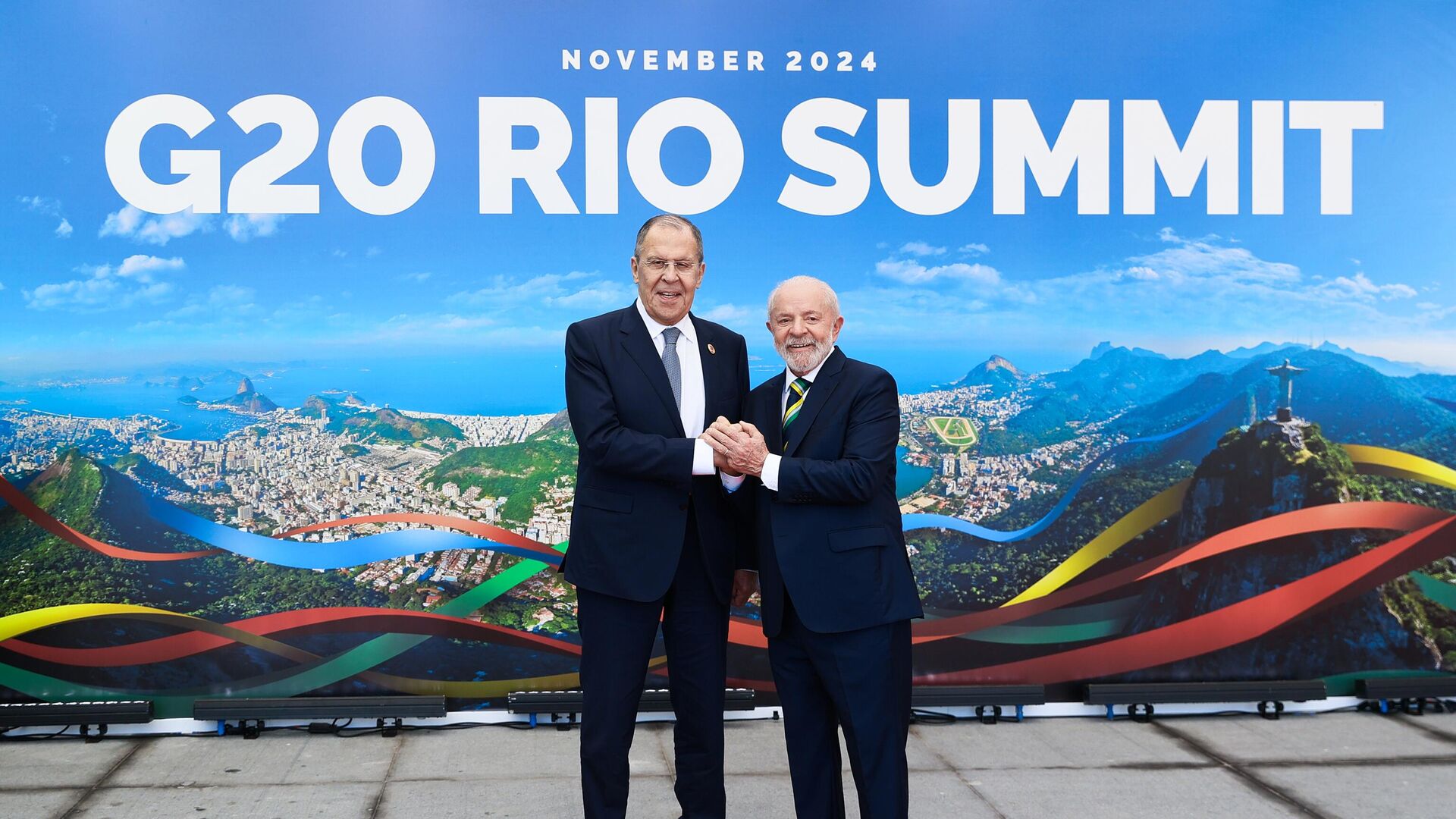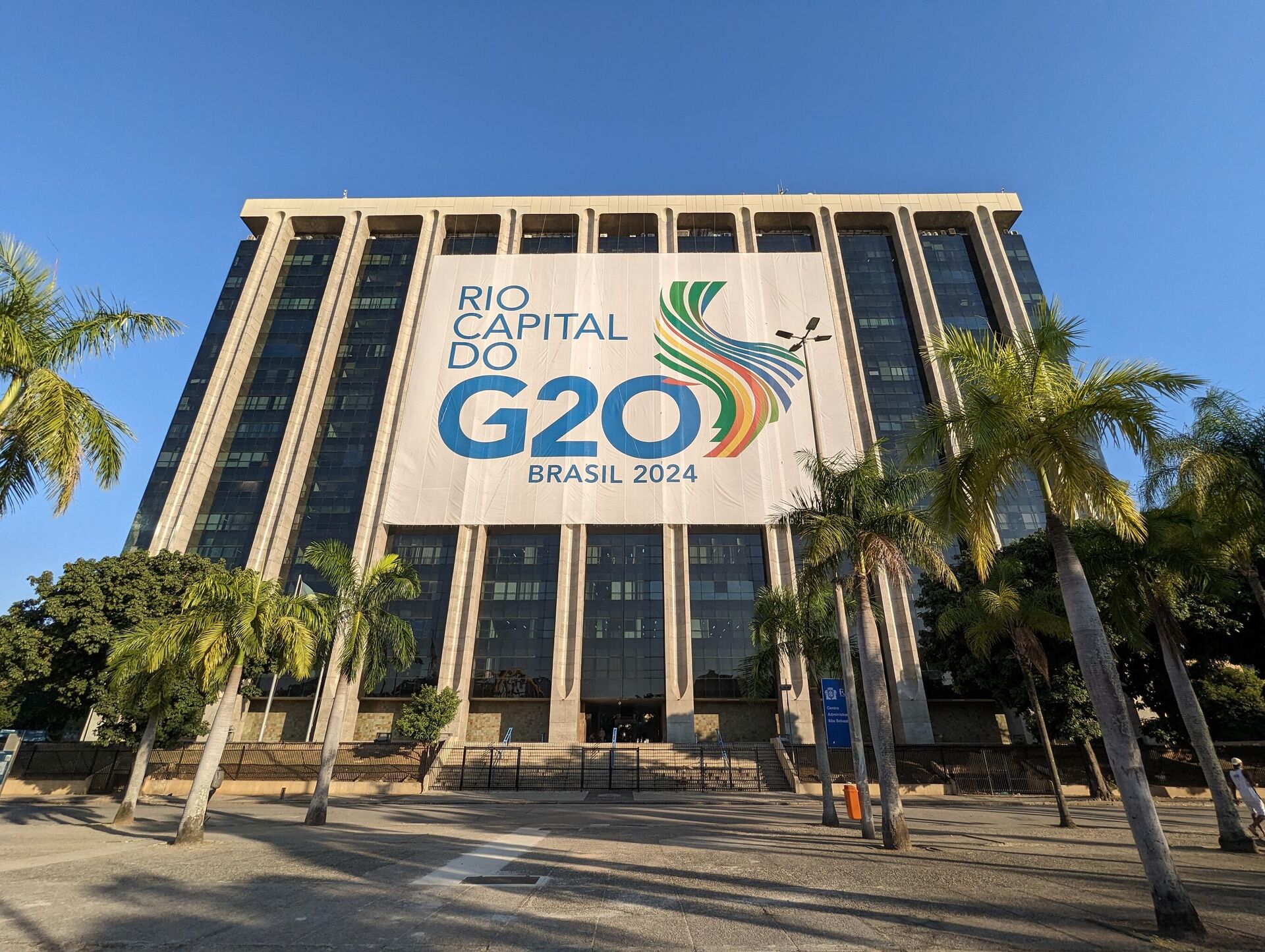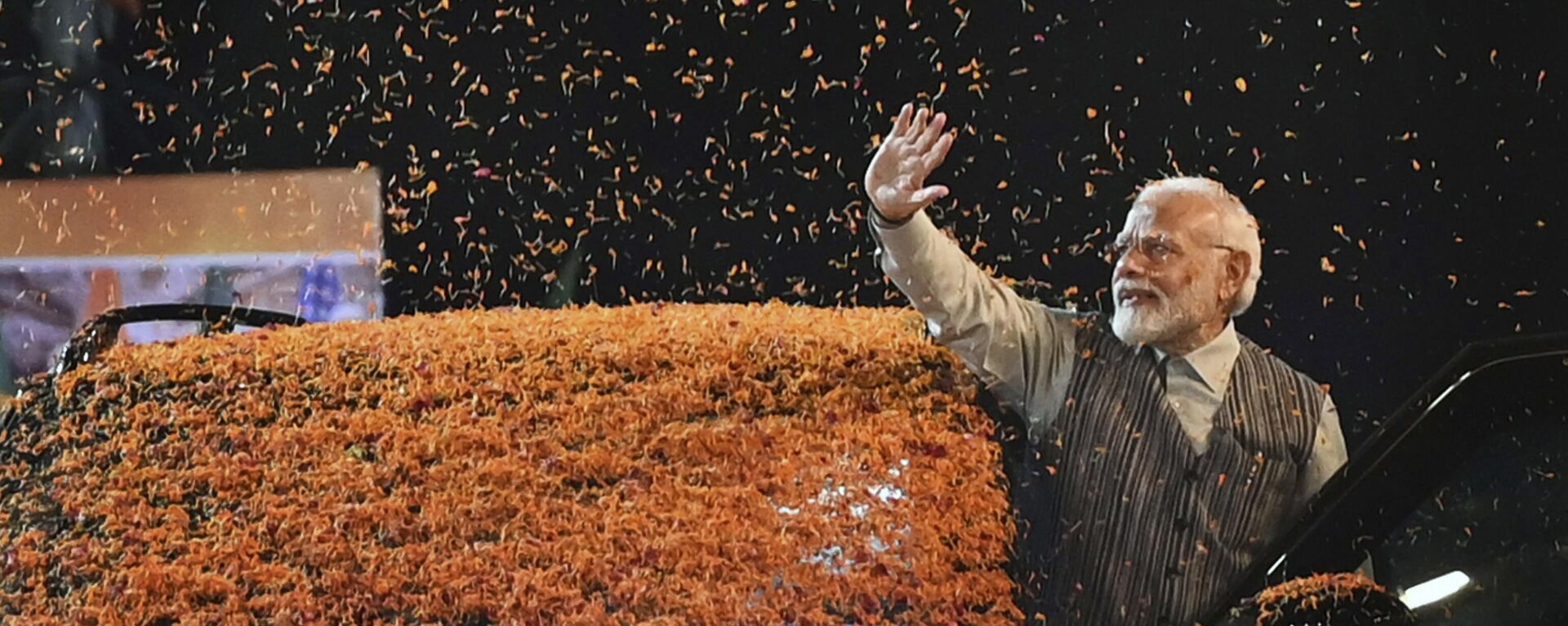Science Fiction and G20 in Rio are Essentially Same, They Create the Future

© Sputnik / Ministry of Foreign Affairs of the Russian Federation
/ Subscribe
There was a couple of remarks, made by a prominent Russian researcher, that merit our attention. Mr. Sergei Shikarev is a highly unusual expert, researching science fiction and fantasy books on the global scale.
And this is what he says: there was a time, when writers all over the world were predicting the bright future, brought to us by new technologies, space travels and the thing called transhumanism. The original meaning of the word was quite positive, it was about human beings obtaining new and exciting capabilities.
That era is gone, Mr. Shikarev is saying. Most writers pessimistically strayed to outright fairy tales. The very few ones who remained loyal to sci-fi are sharply divided, according to their nationalities. You may say, the world has lost its unanimity about the future humanity wants.
What does it have to do with the summit of G20, this week, in Rio-de-Janeiro in Brazil? The answer is, everything. Most of such events are about the future, in any case. Or, at least, that’s what the voters want of their political leaders, to bring the desired future in. But, in this case, we also saw lack of unanimity about the future people want. And we also saw something else, namely a lot of skillful diplomacy of several Global South – BRICS nations, to promote their\ours desirable future, while other G20 members were still unable to overcome their political paralysis.
To remind, G20 is mostly about the global economy, since we are talking about 80-85 per cent of world’s combined GDP and about the same share of world’s trade. One may think these twenty biggest economies, represented on the highest level, would be able to solve any kind of problem easily. Instead, that powerful gathering has split itself into two parts, roughly speaking, the Global North (or the West) and the Global South, and these two parts demonstrate different visions about the desired future, theirs and ours.
It was thrilling to see the progress in the three years on the road from Indonesia (G20 – 2022) to India (2023) to Brazil. The task of the Indonesian hosts in 2022 was to stop the North talking only about “Russia invading Ukraine” and start discussing business, for a change. The Indian hosts have learned the Indonesian lessons and “simply ignored” the Western attempts to drag the G20 into a boycott of Russia, says the eloquent Mr. Timothei Bordachev of the Valdai Discussion Club, Russia. So, it became obvious that one cannot achieve anything at G20 by posturing and avoiding making photos with Russians.
Finally, along came the Brazilians, who turned the G20 into a process, spanning the whole year. There were numerous meetings and other contacts to impress on all the relevant parties, that the Rio summit has inherited the Indian idea to create the Global Alliance to fight poverty and hunger. Russia, most naturally, have joined that effort, being of some importance in the world’s trade in grain, foodstuffs and fertilizers. There were other similar ideas discussed.
So, as a result, G20 has transformed from an emergency consultation platform for crisis response into a long-term governance mechanism dedicated to promoting a more just, inclusive, and equitable global economic system. At least, such system is the mentioned desired future for the Global South.

Баннер саммита G20 на здании префектуры Рио-де-Жанейро, Бразилия
It’s almost impossible to predict if the West, chastised by its triple experience at the G20 summits, will want to share that desired future with the rest. The Rio meeting was a low-key event, compared to hysterical summits in Indonesia and India. Thing is, the West in Rio looked like a flock of lame ducks, grimly watching other birds flying high. There was India ready to announce its records of economic growth in 2024, or Russia, recently gaining the title of world’s 4theconomy after outpacing the struggling Germany.
And there was the US with its President about to leave his post after a revolutionary electoral loss, same with the Chancellor of Germany about to face a similar loss in early 2025. Finally, there also was a peculiar phenomenon of heads of the Western delegations trying hard not even to mention the name of Donald Trump.
It’s really thrilling to see how the best brains in the world refuse to believe that Trump will start an all-out trade war not only with China, but even with the EU, slapping prohibiting tariffs on Chinese, European or other products entering the US. He doesn’t want such war even with China, say the economic gurus, their opinions surveyed by the Asia Times in Hong Kong.
Odds are high that Trump’s tariffs are just “part of a bigger American strategy” and “part of a deal-making process that is going on in Trump’s mind,” says Neil Thomas, an analyst at the Asia Society Policy Institute’s Center for China Analysis, quoted by Asia Times. The goal, Thomas argues, is a “grand bargain” trade deal between the two biggest economies.
Other analysts agree with him, reminding that Trump’s first-term tariffs didn’t stop China’s growing share of global commerce. They know that China didn’t “pay” Trump’s tariffs; American companies and households did.
So, a trade deal that wins a big increase in Chinese investments in US manufacturing jobs would do infinitely more to reward Trump voters than outdated tariffs ripped from the headlines of the 1970s and 1980s. And why not bring in the Group of Seven, the BRICS–Brazil, Russia, India, China and South Africa– and the Global South into a new and reasonable global deal, conclude the analysts.
So, that was the general uncertain mood of the West. While the rest of the G20 members have successfully used that hushed atmosphere in the West to promote the agenda of the new world governance, conductive to the interests of the Global South.
Going back to the remarks of Mr. Shikarev, the profound reader of sci-fi, he also added a couple of ideas to his assessment. Thing is, the reporters talked to him at rather an unusual meeting in Moscow. That was a writer’s conference, called Creating The Future, but is was attended by Mr. Sergei Lavrov, the Foreign Minister of Russia, by Mr. Sergei Kirienko, First Deputy of the President’s Office in Moscow, and other high-level dignitaries.
Do they love that kind of literature so much? Maybe they do, says Mr. Shikarev, but it’s also very noticeable that the governing structures, as well as the top corporations of Russia are currently displaying keen interest in the shifts of public and intellectual opinion on various options of the national future.
Simply speaking, the government wants to know where Russia would like to go to, and to create such future. There are several options for the world of tomorrow all over the globe, you may call them competing visions or different national dreams. So you, first, want to know what your nation wants, and, second, you move in that direction, looking for likeminded folks on the way.
Dmitry Kosyrev is a Russian writer, author of spy novels and short stories. He also did columns for the Pioneer and Firstpost.com

